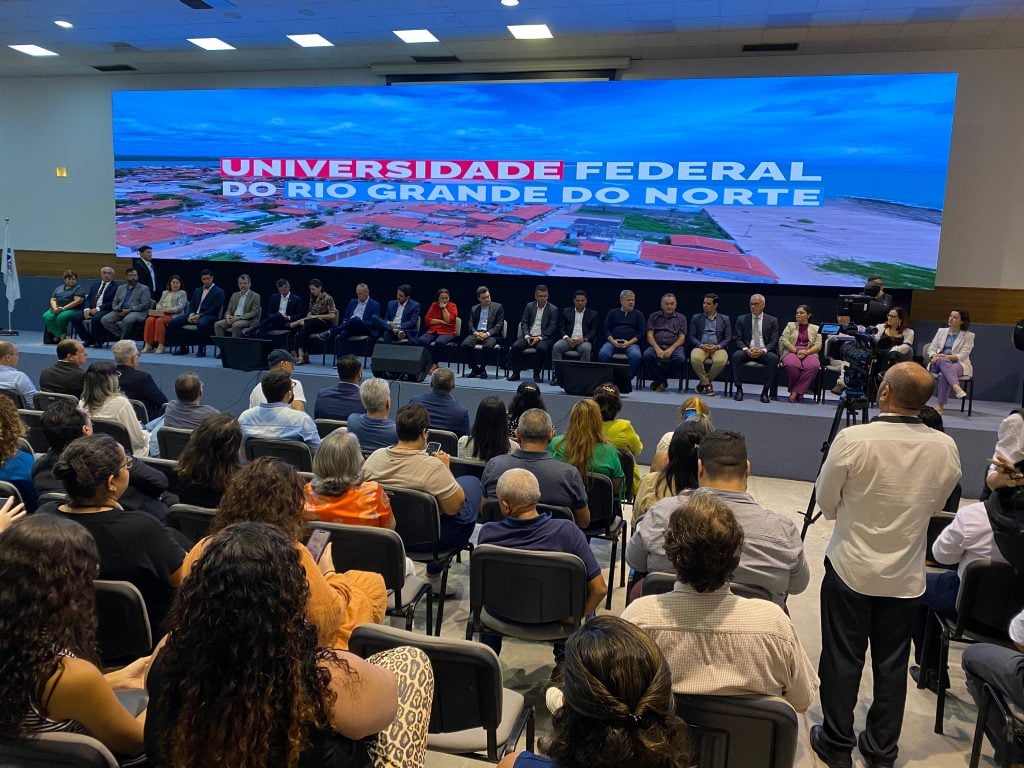Inauguration of Infovia Potiguar marks a new era of high-speed connection in RN
“There is no social inclusion without digital inclusion.” This is how the Minister of Communications, Juscelino Filho, summarized the importance of investing in high-speed internet connections in the country. This statement was part of his speech at the ceremony to deliver the first phase of Infovia Potiguar, held on Monday, April 8, at the School of Government in Natal, Rio Grande do Norte.
Infovia Potiguar is one of 18 state infovias that will be built to democratize access to education, research and innovation in the states, bringing the same quality and security of connection to the interior that is offered in large capitals. In Rio Grande do Norte alone, 21 municipalities will initially be connected, benefiting universities, education and research institutes, basic schools, teaching hospitals and other public agencies.
The project is divided into three phases. In the first, already completed, the metropolitan networks of Ceará-Mirim, João Câmara, Pau dos Ferros and São Gonçalo do Amarante were built, in addition to long-distance sections from Ceará-Mirim to João Câmara and from Pau dos Ferros to Mossoró. There are approximately 406 kilometers of optical fiber.
"We all know how important the internet is in everyone's lives today. We live in a continental country, where many regions are difficult to access, but we are, through this program, prioritizing these regions, because we know that there is no social inclusion without digital inclusion. So, our mission is to bring this inclusion to Brazilians who are not yet included in this environment and, thus, reduce these inequalities", highlights Juscelino Filho.
The inauguration ceremony was organized by the government of the state of Rio Grande do Norte, and was attended and led by Governor Fátima Bezerra, secretaries, mayors and federal and state parliamentarians, as well as rectors and the director-general of RNP, Nelson Simões, among representatives of other entities. “We are delivering to the people of Rio Grande do Norte the first phase of the Infovia Potiguar, which reaches 54% of the population, and by 2026 we want to have the state 100% connected,” said the governor.
Infovia Potiguar is a joint project between RNP, the Government of Rio Grande do Norte, the Federal University of Rio Grande do Norte (UFRN) and energy and internet companies in the region to share optical fiber infrastructure in the interior. It also has the participation of the Federal Institute of Rio Grande do Norte (IFRN), the Federal Rural University of Semiárido (Ufersa) and the State University of Rio Grande do Norte (Uern).
"This first delivery that we celebrate today was only possible through our partnership with federal and state institutions. We have been working together since the launch of the GigaNatal Network, to connect all educational and research institutions located in the territory of Rio Grande do Norte. In this way, we want to go beyond the inclusion of students and teachers who are in the interior. With Infovia Potiguar, we are, as an academic community, together with the state and federal government, and in partnership with the private sector, providing a solid basis for the development of public policies”, highlighted the general director of RNP, Nelson Simões.
Benefits for research, education and health
The State Information Highways project is part of RNP's Conecta e Capacita program, which aims to expand the scope, quality and security of connectivity for education and research in the country. In addition to the information highways in the states, the capacity of the national research network, the Ipê network, will be expanded, National Data Centers (CND) will be implemented and a very high-performance and secure service will be established in the e-Ciência Network.
The program will provide significant progress in the interiorization of the states, through 18 information highways and 79 metropolitan networks in the interior, in addition to those already existing. On this infrastructure, the new national cybersecurity model for the RNP System is also being developed.
In total, around 40 thousand kilometers of optical fiber will be deployed throughout the national territory. The initiative will directly benefit around 1,600 university campuses and research institutes, 180,000 researchers, 3,880 postgraduate programs and 12 innovation environments and technology parks.
